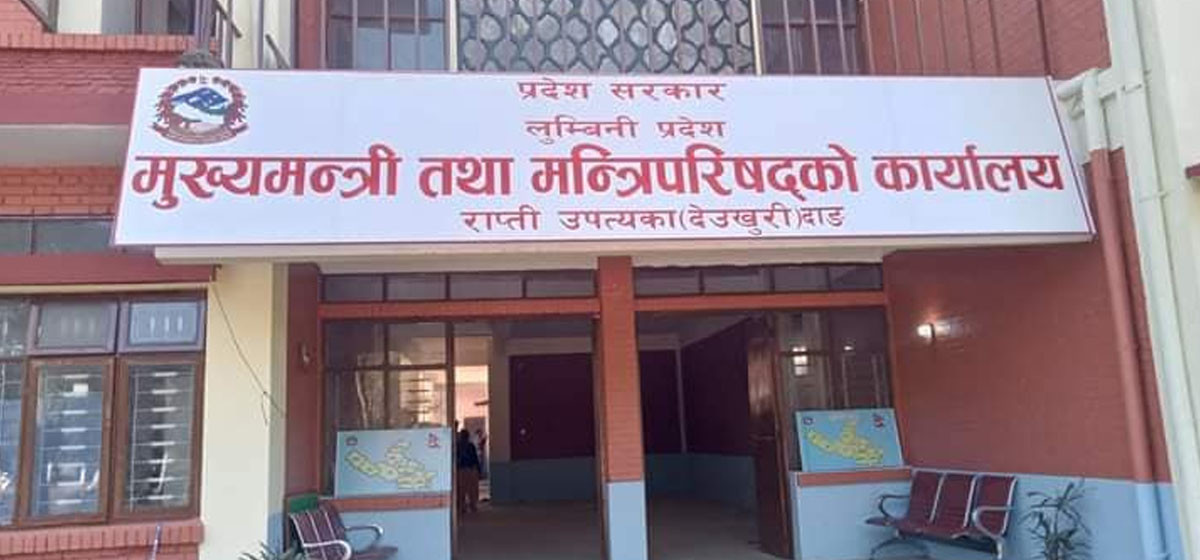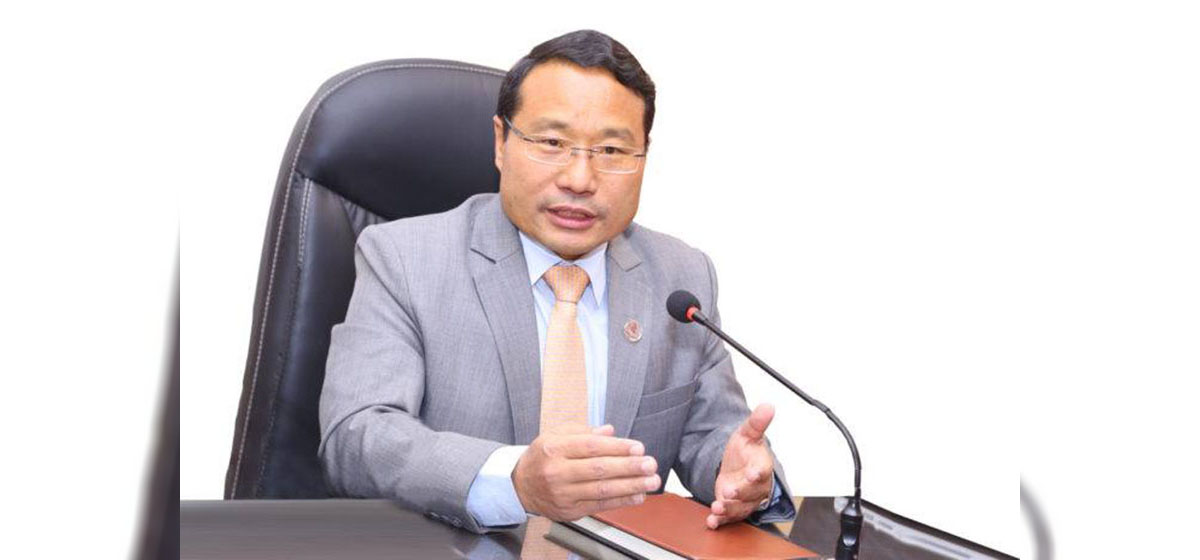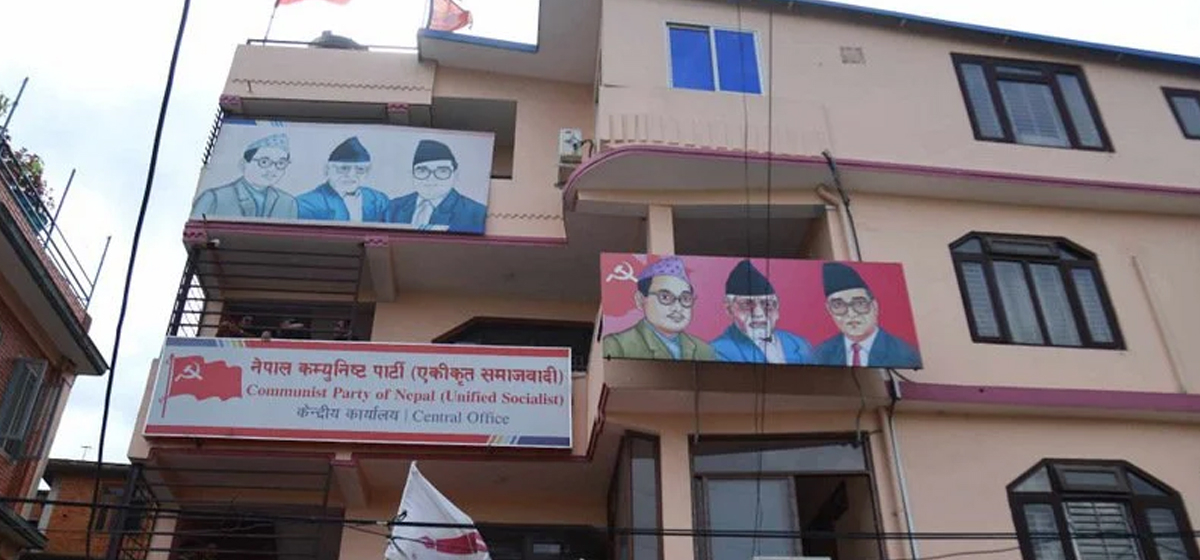
OR
With no legal savvy, local unit judicial panels ineffective
Published On: January 4, 2018 05:30 AM NPT By: Devendra Basnet
DANG, Jan 4: Just a few days ago, the judicial committee of Deukhuri Gadawa Rural Municipality took up a land ownership dispute between a mother and daughter. A woman in Ward No. 6 had persuaded her mother to transfer ownership of their house and land to her name. She later kicked the mother out of the house.
The mother then went to the judicial committee of the local unit, demanding justice. The committee called in both the women for discussions. However, no agreement could be reached. Shanti Chaudhary, deputy chief of the rural municipality and committee coordinator, then decided to send the case to court.
Local 'intellectuals and leaders' intervened, arguing that the dispute should be resolved by the judicial committee itself. Chaudhary is totally clueless how to take the case forward.
“I don't know what to do. What is to be done if the disputing parties don't come to an agreement despite all efforts to reach an agreement?” she said.
The judicial committee, which came into existence with the local elections, has more such cases on its plate. But many of the cases are in limbo as the elected local representatives have neither any legal knowledge nor someone they can turn to for legal advice. They are just as helpless as the parties to the disputes.
“I have never done such work before,” said Chaudhary. “How can we do it now just because this responsibility has come upon us all of a sudden? Lack of legal knowledge is our main problem,” she added.
Similarly, the judicial committee of Lamahi Municipality had a case of polygamy brought before it. The accused is at large. The committee is in confusion how to track him down. or how to take the case forward if they do catch him.
“We do not have the means to pursue the accused. Not just that, we also don't have any idea how to tackle such cases legally,” said Debaka Balbasey, coordinator of the committee. “We are taking on responsibility without the knowledge and means.”
There are many cases still pending at the judicial committee for lack of the legal knowledge required to tackle them. “We have to be honest here. We really don't know the legal procedures to sort out such cases. The state assigned us this responsibility without giving us prior legal training,” Balbasey added.
About 25 cases have been registered at the committee already. So far, the committee has been able to arbitrate only minor cases and simple disputes. Members of the committee are clueless when it comes to more serious disputes regarding land ownership and inheritance, among others.
After the formation of the local units, the judicial committees also came in existence for the purpose of tackling disputes at the local level. The three-member judicial committees are headed by the deputy chiefs of the local units. However, they are neither able to make legal recommendations nor provide legal assistance to service seekers. Such is the condition of many judicial committees across the country.
Furthermore, the judicial committees are vulnerable to pressure from local politicians, who push for the kind of decisions that benefits them, according to Chaudhary. “In my experience, local politicians try to influence judgments and exert pressure on the committee. I have myself experienced such pressure in a few cases. However, my judgments are not influenced by such pressure,” she added.
You May Like This

Local unit judicial decisions backfire for lack of legal savvy
DANG, April 18: Sahajram Ahir, chief of Gadhawa Rural Municipality in Dang, has appeared at the Province 5 High Court three... Read More...

Justice delivery by local units ineffective due to lack of legal knowledge
The judicial committee was formed but I have no idea how I will carry out a judicial job without a... Read More...

Local development minister pledges to resolve problems related to restructuring of local unit
KATHMANDU, Sept 11: Minister for Federal Affairs and Local Development Ministry Hitraj Pandey has expressed his commitment to resolve problems... Read More...


Just In
- CM Mahara expands Cabinet in Lumbini Province
- FinMin Pun addresses V-20 meeting: ‘Nepal plays a minimal role in climate change, so it should get compensation’
- Nepalis living illegally in Kuwait can return home by June 17 without facing penalties
- 'Trishuli Villa' operationalized with Rs 100 million investment
- Unified Socialist rejoins Lumbini Province govt following ministry allocation
- Police release ANFA Vice President Lama after SC order
- 16 hydroelectric projects being developed in Tamor River
- Cosmic Electrical completes 220 kV transmission line project

















Leave A Comment